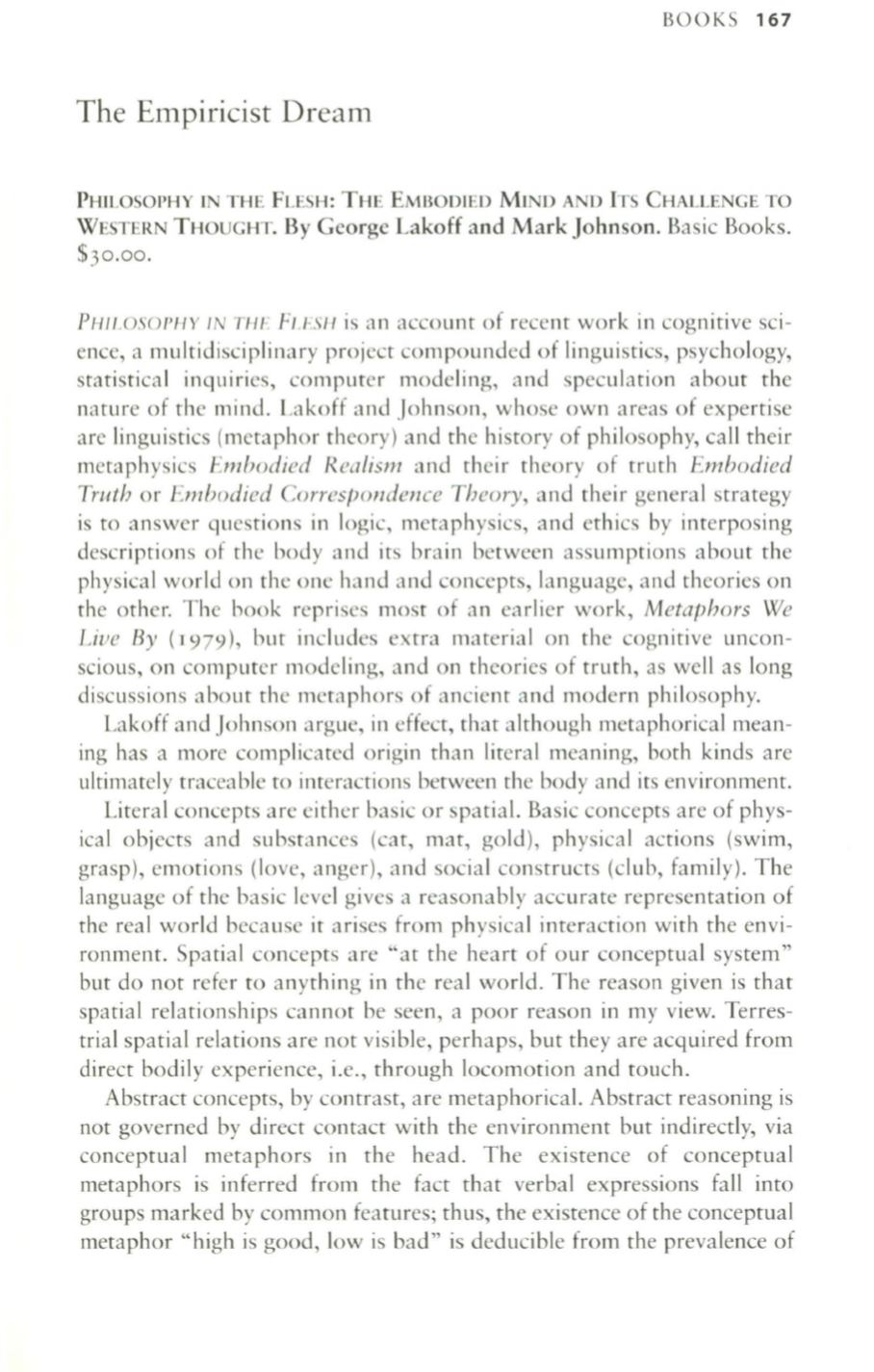
BOOKS
167
The Empiricist Dream
PHILOSOPHY IN THE FLESH: THE EMBODIED MIND AND ITS CHALLENGE TO
WESTERN THOUGHT. By George Lakoff and Mark Johnson. Basic Books.
$3°.
00 .
PHIl.OSOPHY IN THE Fu:sl-f
is an account of recent work in cognitive sci–
ence, a multidisciplinary project compounded of linguistics, psychology,
statistical inquiries, computer modeling, and speculation about the
nature of the mind. Lakoff and Johnson, whose own areas of expertise
are linguistics (metaphor theory) and the history of philosophy, call their
metaphysics
Embodied Realism
and their theory of truth
Embodied
Truth
or
Embodied Correspondence Theory,
and their general strategy
is to answer questions in logic, metaphysics, and ethics by interposing
descriptions of the body and its brain between assumptions about the
physical world on the one hand and concepts, language, and theories on
the other. The book reprises most of an earlier work,
Metaphors We
Live
By
(1979),
but includes extra material on the cognitive uncon–
scious, on computer modeling, and on theories of truth, as well as long
discussions about the metaphors of ancient and modern philosophy.
Lakoff and Johnson argue, in effect, that although metaphorical mean–
ing has a more complicated origin than literal meaning, both kinds are
ultimately traceable to interactions between the body and its environment.
Literal concepts are either basic or spatial. Basic concepts are of phys–
ical objects and substances (cat, mat, gold), physical actions (swim,
grasp), emotions (love, anger), and social constructs (club, family). The
language of the basic level gives a reasonably accurate representation of
the real world because it arises from physical interaction with the envi–
ronment. Spatial concepts are "at the heart of our conceptual system"
but do not refer to anything in the real world. The reason given is that
spatial relationships cannot be seen, a poor reason in my view. Terres–
trial spatial relations are not visible, perhaps, but they are acquired from
direct bodily experience, i.c., through locomotion and touch.
Abstract concepts, by contrast, are metaphorical. Abstract reasoning is
not governed by direct contact with the environment but indirectly, via
conceptual metaphors in the head. The existence of conceptual
metaphors is inferred from the fact that verbal expressions fall into
groups marked by common features; thus, the existence of the conceptual
metaphor "high is good, low is bad" is deducible from the prevalence of


